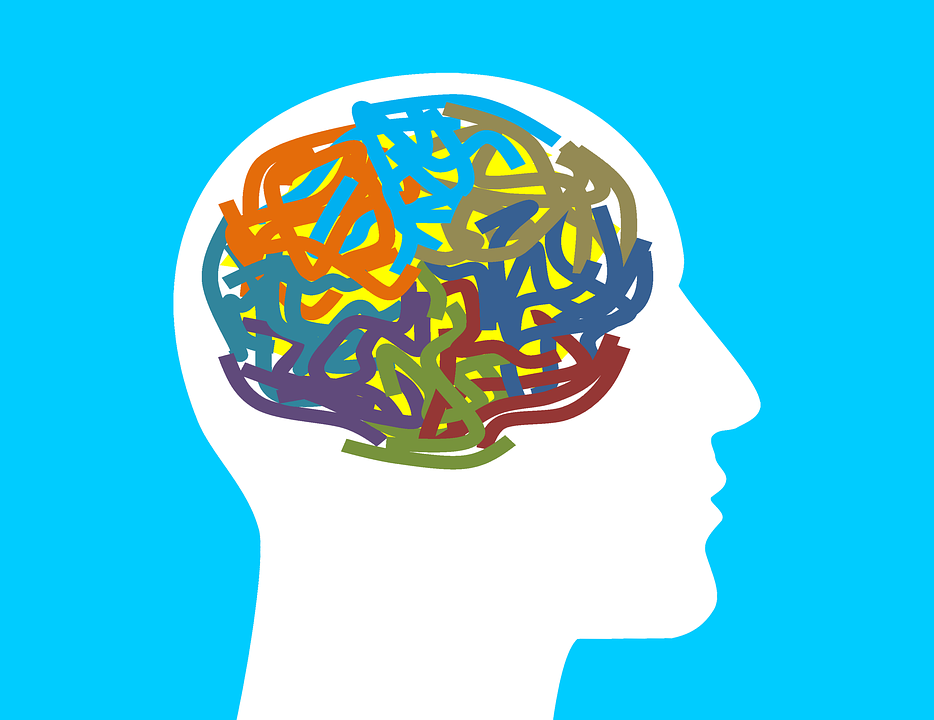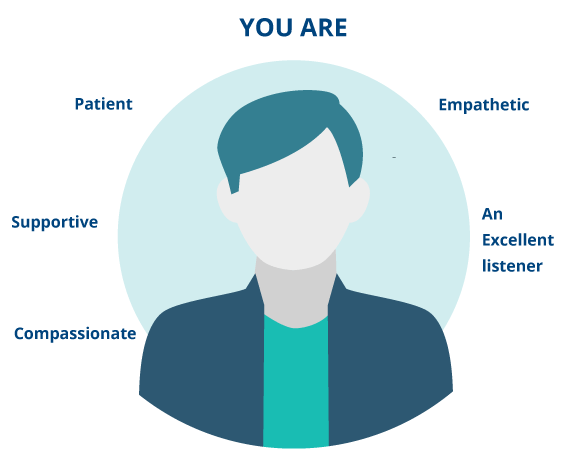Unlocking the Tricks of Mental Health: An Introduction of Therapy and Treatment Options
Psychological health is a complex and critical facet of general well-being. Numerous therapy and therapy options exist to attend to numerous psychological challenges. Each method provides special benefits and methods customized to private demands. Recognizing these options is vital for anyone looking for to boost their mental health. Marriage Counselling. What factors should one consider when discovering these avenues? The response might disclose a path to a healthier emotional state
Recognizing Mental Wellness and Its Value
Psychological wellness includes the psychological, emotional, and social wellness of people, significantly influencing how they assume, feel, and act. Its value can not be overemphasized, as it influences every aspect of life, including partnerships, job performance, and general lifestyle. Individuals with good mental wellness often tend to manage anxiety more properly, keep much healthier connections, and make educated decisions. On the other hand, poor psychological health and wellness can lead to emotional distress, impaired functioning, and numerous mental illness, which might require specialist intervention. Recognizing psychological health is essential for identifying the indications of distress and the demand for support. Recognition additionally advertises compassion and reduces stigma, encouraging people to look for help when required. By focusing on psychological health, communities can foster environments that support emotional health, ultimately resulting in much healthier, much more resistant people. This structure functions as an essential action toward efficient psychological health and wellness counseling and treatment choices.
Kinds Of Therapy Techniques
Counseling methods differ extensively, each tailored to fulfill the distinct demands of people seeking assistance. Among the most usual types are cognitive-behavioral treatment (CBT), which concentrates on determining and altering adverse idea patterns, and person-centered therapy, which emphasizes empathy and acceptance. Psychodynamic therapy checks out previous experiences and subconscious processes to recognize current habits, while solution-focused quick treatment aims to determine services as opposed to explore problems.Additionally, family therapy addresses relational dynamics and interaction within households, promoting much healthier communications. Group therapy supplies a public space for participants to share experiences and support one another. Other techniques include existential treatment, which encourages people to discover definition and function, and art or music treatment, which makes use of creative expression as a restorative device. Each method offers distinctive methods and viewpoints, permitting customers to find one of the most ideal technique for their personal development and healing journeys.
Checking Out Various Therapy Modalities
In the domain name of mental wellness therapy, different therapy methods provide distinct approaches to treatment. Cognitive Behavior modification highlights the link in between thoughts and habits, while Psychodynamic Treatment discovers unconscious influences on psychological health. Additionally, Mindfulness-Based Methods advertise present-moment awareness as a way to improve emotional regulation and general psychological wellness.
Cognitive Behavior Modification
Cognitive Behavior Treatment (CBT) stands apart as one of the most commonly exercised and looked into modalities in psychological health and wellness therapy. This technique concentrates on the interconnection in between feelings, behaviors, and thoughts, emphasizing that modifying unfavorable idea patterns can cause improved emotional health and behavioral changes. CBT is structured, normally involving a minimal number of sessions, and intends to gear up individuals with useful skills to manage their signs. It is efficient for a range of problems, consisting of stress and anxiety conditions, clinical depression, and trauma. By using techniques such as cognitive restructuring and direct exposure treatment, CBT cultivates strength and encourages customers to face difficulties head-on, making it a valuable option in the landscape of psychological wellness treatments.
Psychodynamic Treatment Strategies
Psychodynamic treatment strategies use a deep exploration of the unconscious mind and its influence on actions and psychological wellness. Rooted in Freudian theory, these techniques highlight the value of early youth experiences and subconscious disputes. Through techniques such as free association, dream analysis, and transference, individuals acquire insight into their feelings and thoughts, promoting self-awareness and understanding. This therapeutic modality encourages clients to discover repressed feelings and unsolved concerns, which can be pivotal in resolving current psychological difficulties. By analyzing the interplay in between previous experiences and present behaviors, psychodynamic therapy intends to promote emotional recovery and personal development. Inevitably, it provides a structure for individuals to explore complicated internal dynamics that affect their psychological health.

Mindfulness-Based Techniques
While conventional treatments frequently concentrate on previous experiences, mindfulness-based strategies focus on present-moment understanding as a pathway to emotional health. These methods, including mindfulness-based cognitive treatment (MBCT) and mindfulness-based stress reduction (MBSR), encourage people to involve fully with their ideas and feelings without judgment. Professionals find out to observe their mindsets, cultivating a higher understanding of emotional triggers and reactions. This practice not only minimizes symptoms of anxiousness and clinical depression but likewise boosts overall psychological durability. By integrating mindfulness workouts, such as reflection and deep breathing, customers grow a sense of peace and clearness. Ultimately, mindfulness-based techniques encourage people to navigate life's challenges with raised recognition and approval, promoting a much healthier partnership with their emotions and ideas.
The Role of a Specialist or Counselor
A proficient specialist or therapist plays an essential duty in sustaining people via their mental health and wellness trips. They offer a risk-free, non-judgmental area where customers can reveal their thoughts and feelings openly. Mental Health Resources. By employing various healing strategies tailored per person's needs, specialists aid clients check out underlying issues that may add to their psychological health and wellness challenges.Therapists use support and devices to cope with tension, anxiousness, additional resources anxiety, and various other emotional difficulties. Their training furnishes them to acknowledge patterns in actions and assumed procedures, helping with insights that cause personal growth. They likewise cultivate a solid therapeutic partnership, which is crucial for successful outcomes.Moreover, specialists continue to be fully commited to discretion and ethical standards, ensuring a trusting atmosphere. Inevitably, the role of a specialist or counselor is to equip individuals, motivating them to create durability and healthier coping techniques while steering via life's complexities
Just how to Choose the Right Counseling or Treatment Option
Selecting the appropriate counseling or therapy alternative begins with evaluating individual requirements. It is vital to understand personal difficulties and objectives prior to exploring various therapy styles. This fundamental step can substantially influence the performance of the selected approach.
Analyze Your Demands

How can individuals successfully analyze their mental health and wellness needs when examining counseling or treatment alternatives? They must mirror on their emotional state and determine specific concerns, such as connection, stress and anxiety, or anxiety obstacles. Journaling can be a valuable tool for tracking thoughts and sensations gradually. In addition, individuals may take advantage of looking for responses from relied on close friends or household members pertaining to regarded changes in habits or state of mind. It is additionally helpful to assess individual goals for therapy, such as boosting coping skills or obtaining insight into personal patterns. Looking into various therapy methods and their suitability for particular needs can aid in making an informed option. Ultimately, self-awareness plays a critical function in selecting the best path for psychological wellness assistance.
Explore Therapy Designs
While going across the varied landscape of treatment options, individuals ought to consider numerous designs of counseling to locate the ideal suitable for their distinct demands. Cognitive Behavior Modification (CBT) concentrates on altering unfavorable idea patterns, while Psychodynamic Therapy checks out previous experiences and subconscious procedures. Humanistic techniques stress personal growth and self-actualization, cultivating an encouraging atmosphere. In addition, mindfulness-based treatments grow present-moment recognition, assisting psychological guideline. For those seeking framework, Solution-Focused Quick Treatment targets certain goals and solutions. Group therapy gives a communal setup for shared experiences and support. Inevitably, individuals ought to review their preferences, convenience levels, and details difficulties, ensuring they select a therapeutic style that reverberates with their personal trip toward mental well-being.
Getting Rid Of Obstacles to Looking For Assistance

The Benefits of Counseling and Treatment for Mental Wellness
Seeking aid for psychological health and wellness challenges can bring about significant renovations in total health. Counseling and treatment supply individuals with a risk-free space to explore their sensations and thoughts, cultivating self-awareness and individual growth. These professional solutions outfit customers with coping strategies and analytical skills customized to their one-of-a-kind situations.Moreover, treatment can reduce signs of stress and anxiety, anxiety, and various other psychological health and wellness disorders, improving psychological strength. Regular sessions promote accountability and motivate people to set and attain individual objectives. Through numerous healing methods, such as cognitive-behavioral treatment or mindfulness techniques, customers learn to reframe unfavorable thoughts and create healthier behaviors.Additionally, the healing connection itself can be a resource of assistance, helping to fight isolation and solitude. On the whole, taking part in counseling and therapy is a proactive step towards attaining psychological health, enabling people to lead more satisfying lives.
Often Asked Inquiries
The Length Of Time Does Counseling or Therapy Typically Last?
The period of counseling or treatment varies substantially, often lasting from a couple of sessions to a number of months or years. Website Factors affecting this include the individual's specific needs, the sort of therapy, and healing goals.
What Should I Anticipate During My Initial Session?
Throughout the first session, individuals can expect an introduction, discussion of worries, and the therapist's technique. They may complete evaluations and develop objectives, promoting a secure atmosphere for open interaction and building connection.

Are There Any Risks Linked With Treatment?
Therapy can include threats, such as psychological pain, vulnerability, or confronting painful memories. While these challenges might arise, they can additionally bring about individual growth and recovery, making the therapeutic procedure facility yet possibly rewarding.
How Can I Tell if My Specialist Is a Great Fit?
Determining if a therapist is a great fit involves evaluating convenience, communication style, and therapeutic strategy. Positive relationship and progression towards objectives are signs of a suitable match, essential for effective psychological wellness assistance.
Will My Insurance Coverage Cover Therapy or Therapy Procedure?
Figuring out insurance coverage for counseling or therapy sessions often calls for calling the insurance policy supplier straight. Policies differ considerably, so individuals should validate benefits, co-pays, and any type of needed pre-approvals prior to going after therapy solutions. Among the most common types are cognitive-behavioral treatment (CBT), which focuses on determining and transforming negative idea patterns, and person-centered treatment, which emphasizes compassion and approval. Psychodynamic treatment checks out unconscious procedures and previous experiences to recognize present habits, while solution-focused brief treatment aims to determine services rather than check out problems.Additionally, family therapy addresses relational characteristics and communication within households, cultivating much healthier interactions. Various other approaches consist of existential treatment, which encourages people to locate significance and function, and art or songs therapy, which uses innovative expression as a healing device. Cognitive Behavioral Treatment highlights the link between thoughts and actions, while Psychodynamic Therapy discovers unconscious influences on psychological wellness. website here Cognitive Behavior Treatment (CBT) concentrates on altering adverse idea patterns, while Psychodynamic Treatment checks out past experiences and subconscious procedures.